8. La grande Guerra (Mario Monicelli, 1959)
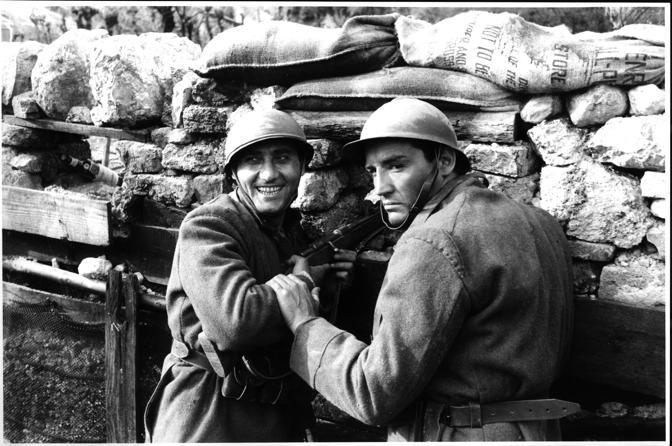
It’s considered one of the most important movies in cinema history, and although it has a comedic perspective, it also shows the tribulations, horror, suffering and dramatic in-views of those who lived through World War I.
Another movie directed by Mario Monicelli and released one year after the legendary comedy “I Soliti Ignoti”, “La Grande Guerra” may be seen as a drama in most of the movie’s moments, while approaching them with a comedic perspective, with two very strange characters and the realism of the historic event.
Not only does the movie present a realistic account of the tribulations of World War I and the life in the trenches, but it also shows a social point of view of its society, represented by two characters that are caught in the midst of something they don’t want to be in.
It’s a movie marked by two fantastic performances by Vittorio Gassman and Alberto Sordi as Giovanni Busacca and Oreste Jacovacci, two very funny characters that end up realizing what is coming to them and the enduring task they must surpass.
Always trying to escape the battle, both soldiers fight for survival in what may be seen as a cowardly act that, for many critics, may have been compensated by their act of courage and altruistic sacrifice toward a stupid and senseless war.
9. I Vitelloni (Federico Fellini, 1953)
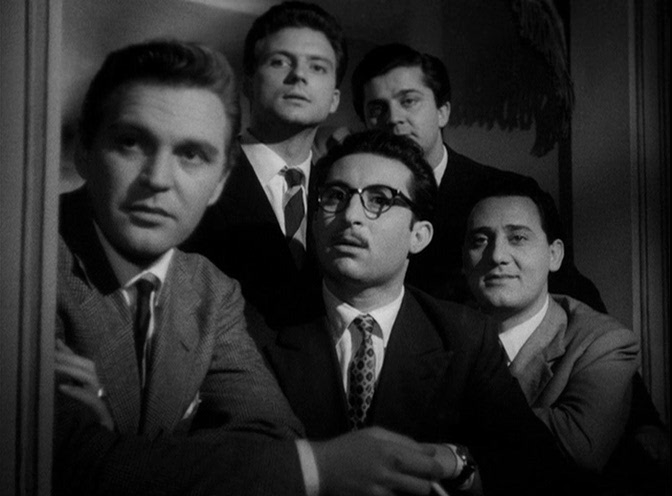
“I Vitelloni” has a big advantage over “Otto e mezzo” in terms of acceptance and reception. It’s a much easier movie to understand and interpret, while combining great acting with a quite interesting plot. Also, personally, it features one of my favorite actors, Alberto Sordi, helping launch his career as one of Italy’s most important actors, both in drama and comedy.
Although I’d like to see more of Sordi in this movie, he still gives a great impression of how successful his career will be in the years onward. It tells the story of five young friends, quite different from one another, and each with his fantasies and dreams. Mostly, it tells the story of one of them, Fausto Moretti, a womanizer who is forced at gunpoint to marry Sandra, a shy and innocent girl who fell in love for the wrong man (or at least it seems that way).
Sandra is Moraldo’s sister, beginning a series of possible troubles for the womanizer. Despite being considered a comedy-drama, the comedy is actually quite insignificant and the drama dominates most of the film. It tries to follow the five friends’ lives, but Fausto and Moraldo are Fellini’s biggest attractions. Still, the viewer is “distracted” by the dream of Riccardo; the lunacy and “infantile” Alberto, played by Sordi; and Leopoldo, the aspiring writer.
Check “La Strada” (1954) and “Le notti di Cabiria” (1957), both directed by the master Federico Fellini that although quite deserving of a place on this list, both were left out due to the limit of 30 movies.
10. Sciuscià (Vittorio De Sica, 1946)
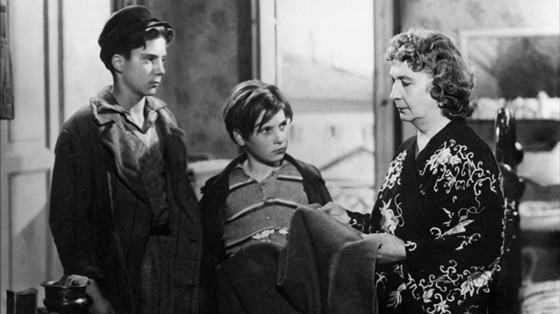
A year had passed after the end of World War II and Italy was in shambles, destroyed and in need of a boost, economically speaking. The consequences of the war hit the Italian people, not only financially but also emotionally, and De Sica’s movies completely transpire that same consequence.
He chooses, again, children to play important roles in his movies and the same will happen in “Bicycle Thieves”, his most successful release. Also again, the ending is quite deep and serious and not a happy one at all. The same happens in the 1944 and 1948 releases, listed here.
“Sciuscià” is a very deep critic to Italy and could possibly be interpreted as a cry for help and a call for reforms. The plot is focused on the friendship of two kids who have to support their parents and are fooled by the brother of one of them, leading to their arrest and tragic ending.
It deals with friendship and the contemporary life of Italy at the end of the 1940s, and is a very powerful critic of the sacrifices and lives kids had to have in order to survive in a country where the poor had so few opportunities.
11. 8 1/2 (Federico Fellini, 1963)
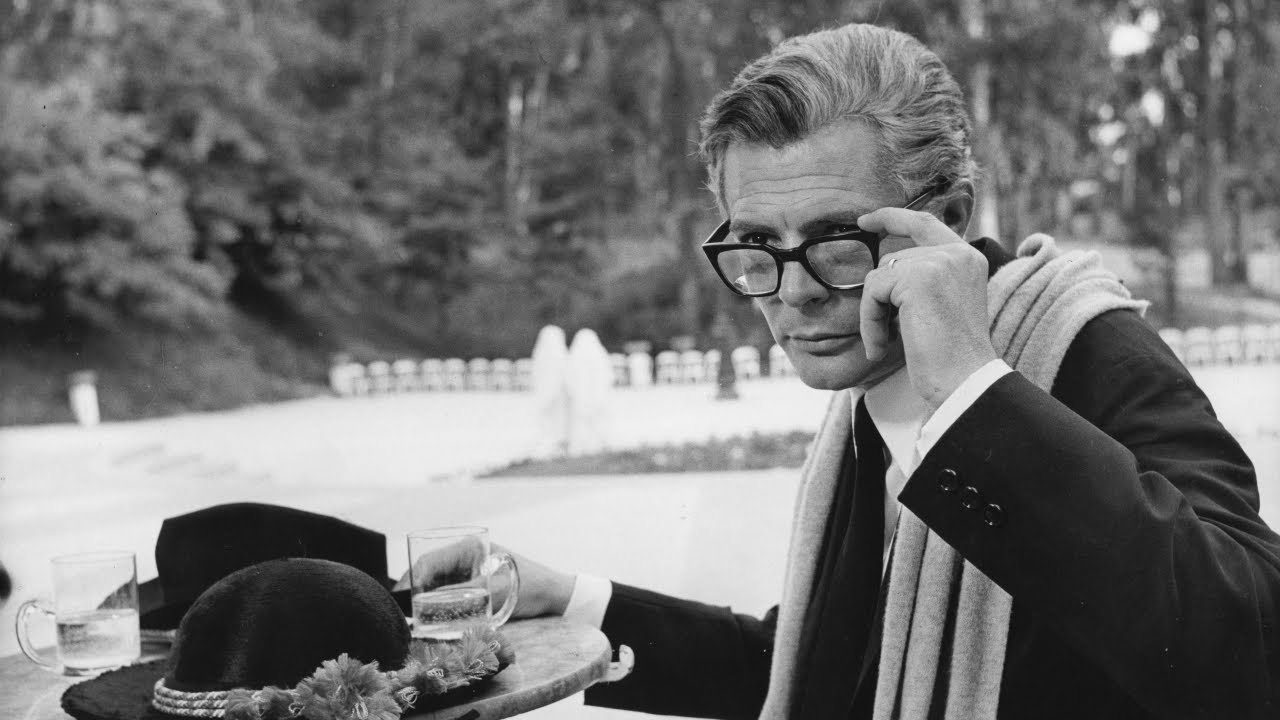
There’s no doubt about the influence “Otto e mezzo” had on the film industry and although it’s placed in such a low position, this film is actually one of the most influential movies on the list and considered by many as one of the best movies ever made.
It has several interpretations and for that reason may not be well received by viewers who aren’t used to Fellini’s movies. There’s a need for some “cinematic” baggage for one watching a Fellini film, and in this one the baggage has to be even larger.
It’s a highly surrealistic story of a film director with “director’s block”, while directing a new movie and in the midst of marital and artistic difficulties that take him to a series of flashbacks that many may consider as autobiographical, and of an obsessive personality and mind. It’s alongside “La Dolce Vita” as Mastroianni’s greatest release and greatest role, in which his acting skills are exhibited in tremendous form.
Many may consider his character to be a dreamer or obsessive, and many may consider him as a genius or a frustrated man. That is the beauty of this film and a demonstration of how Mastroianni’s acting genius plays such an important role in this film and in the movie industry in general.
12. I bambini ci guardano (Vittorio De Sica, 1944)
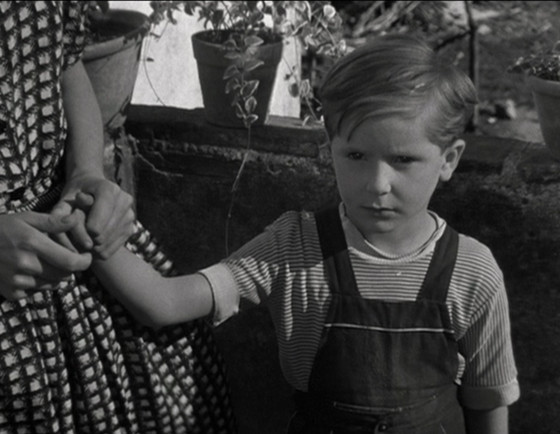
Emotion runs deep and a very strong sense of unusual maturity comes to mind when watching this film. It’s most notable for its graphic demonstrations of emotion by the child in the leading role. There’s a sense of giving up when watching this release; the viewer feels sorry for both father and child, never ignoring the need to create justice after the mother’s consecutive unscrupulous acts.
The acting is superb and it is mainly enhanced by the graphic and powerful scenes of sorrow and deep emotion, performed at a high level by an actor so young. Up to this point, Italy was in the middle of a losing war and defeat was very near. I’m not saying that this movie has any concerns with that fact, but some parallels come to mind.
De Sica always transported the present and reality into his movies, and perhaps for that reason “I bambini ci guardano” comes as a highly difficult and dramatic movie, and one of De Sica’s most emotional releases.
It is not underrated, not even close, but I truly feel this movie could very well go head-to-head with other movies by De Sica that are usually more famous, such as “Sciuscià” or “Bicycle Thieves”. He chooses a child to play the lead role, just as in the two films mentioned before. They represent what Italy needed the most: a shred of innocence and humanity, but with traces of maturity and simplicity.
Check: “Matrimonio All’italiana” (1964), also directed by De Sica, starring the legendary Marcello Mastroianni and the all-time diva Sophia Loren in a great comedy-drama that is more drama than comedy, where both talents hit sky-high levels.
13. La Notte (Michelangelo Antonioni, 1961)
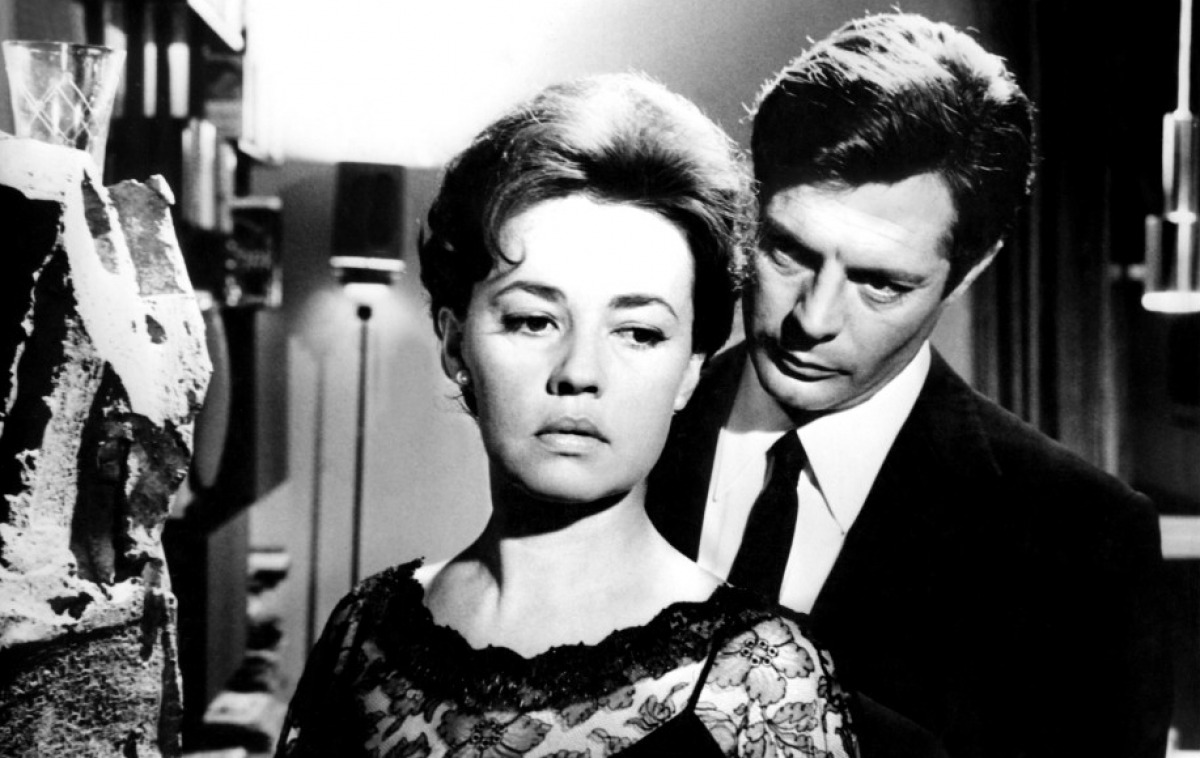
It’s my favorite release from Antonioni’s trilogy, not only for the fact that it features one of my all-time favorite actors, Marcello Mastroianni, but also due to its exquisite revelation and storytelling of two people involved in a condemned relationship, which is ‘diseased’ by betrayal, suspicion and a general lack of communication. The movie accompanies the couple throughout an entire day, hitting its climax in the evening at a party.
More than a movie, this release could be viewed as a case study in failed relationships that fall apart over the years, due to betrayal or a simple lack of communication. Antonioni doesn’t give it a happy ending, leaving the viewer a proper interpretation of its ending. Still, one of the interpretations may be a failure in reuniting together as a couple, but also a failure in understanding each other and remaining distant, while together.
14. Brutti, sporchi e cattivi (Ettore Scola, 1976)
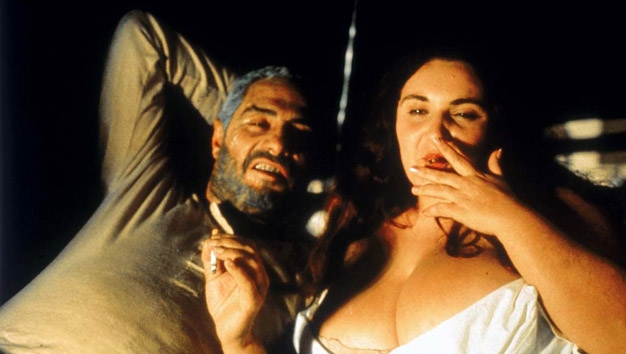
It’s an unforgettable movie, not only by its humoristic moments but also by its grotesque style with powerful sexual content and strong language. It may be unfair to rate it in third place, but considering the film listed in second place, this is the only spot it could be placed. It’s very often called a grotesque-comedy as it deviates from the comedy-dramas that were still being released.
Like “Fantozzi”, this was released in the second half of the 1970s, creating a new breed of Italian comedies, which until then were very “obsessed” with the ideal of the war and the contemporary description of Italy, building a plot with comedic and dramatic characteristics.
It’s by far Nino Manfredi’s most difficult role, where he plays a grotesque and badly-mannered man with only one eye. Giacinto lives with all his children, his children’s children, their spouses, husbands and every sort of “family” you might remember. He lives in a small hut with more than 10 people crowded inside.
After losing his eye, the insurance gave him a large sum of money, which he refuses to share with the rest of the “family”. Fearing for his life, he starts getting obsessed and even creepier. But with a family like that, who wouldn’t?
The grotesque classification is actually quite fair. Although it contains its sordid but also dramatic moments, “Brutti, sporchi e cattivi” does contain a great deal of swearing and sexual content that even for today would be controversial and rated ‘mature’. Most of his daughters are portrayed by himself as prostitutes, and his sons as thieves, killers and pigs who only want to steal his money. Despite being true, it is still a fantastical way to describe a comedy.
Although controversial, the movie is a masterpiece, and it changed the landscape of Italian comedies while maintaining a certain, but small, degree of tradition with the inclusion of negative emotions. It’s a must-watch movie!
Check: “C’eravamo tanto amati” (1974) also directed by Ettore Scola, and starring the legendary duo of actors, Nino Manfredi and Vittorio Gassman.
15. Il Conformista (Bernardo Bertolucci, 1970)
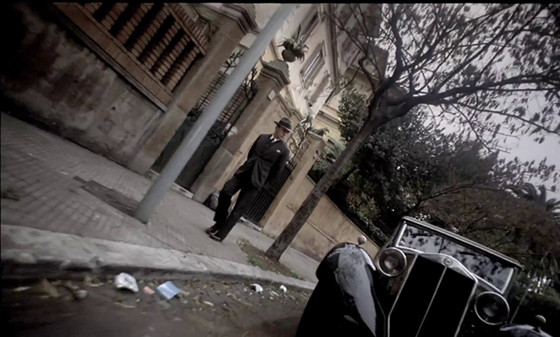
I have to admit that I’m not a big Bertolucci fan. The director always tries to go around the proper objective of his films, leading the viewer to some uninteresting parts of his movies’ plots. Also, he isn’t quite accurate or factual in his movies, with some examples like “1900” and “The Last Emperor”, but still he is a widely acclaimed and respected director and one of the most important directors after 1950.
Actually, in this film, Bertolucci does an incredible job describing the rise of the fascist regime through the eyes of a fascist supporter. The role is played by Jean-Louis Trintignant, a young fascist who is a bit lost in society and wants to be part of the novelty rising in Europe, the fascist idealism.
The movie is mostly shown through a series of flashbacks. The young fascist, convinced of his ideals, has a plan to kill his former university professor, a revolutionary and anti-fascist. The depiction of the “disease” of fascism is well interpreted with most of his acquaintances being portrayed by blind characters, which may symbolize the blindness of the regime, but also the use of huge proportions that are symbolic of the fascists’ megalomanias.
Throughout the movie, the main role gets more and more romantically absorbed by his victim’s wife and the friendship developed with his victim, even doubting his own ideals.